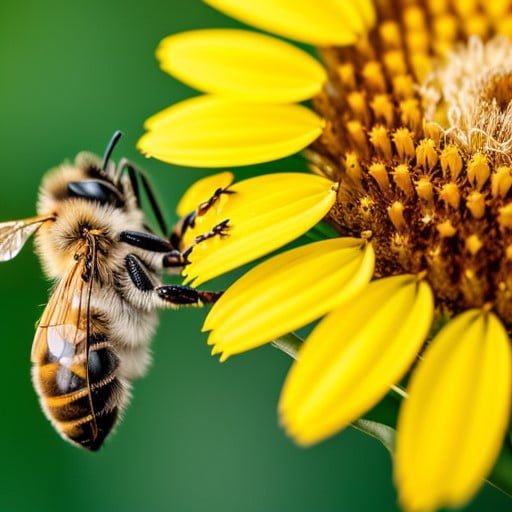Honeybees are more than just cute, fuzzy insects that produce sweet honey. They play a crucial role in human civilization by pollinating our crops and sustaining our food supply. However, in recent years, the world has seen a dramatic decline in honeybee populations, posing a significant threat to our way of life.
The Importance of Honeybees in Human Civilization
Honeybees are responsible for pollinating approximately one-third of the food we consume, including fruits, vegetables, and nuts. Without them, our agricultural industry would suffer a significant blow, leading to decreased yields and rising food prices. Additionally, honeybees also pollinate crops that feed livestock, meaning that their decline would have a ripple effect throughout the entire food chain.
Moreover, honeybees also produce honey and beeswax, which have been used for centuries in various industries, from medicine to cosmetics. The value of honeybee products is estimated at around $19 billion per year globally, making them essential not only for our food supply but also for our economy.
The Alarming Decline of Honeybee Populations
In recent years, honeybee populations have been rapidly declining, with some regions seeing losses of up to 40% of their colonies. There are several factors contributing to this decline, including the use of pesticides, habitat loss, climate change, and disease.
Pesticides, particularly neonicotinoids, have been linked to honeybee deaths, as they can impair bees’ ability to navigate and forage for food. Habitat loss due to urbanization and agriculture also reduces the availability of food and shelter for bees. Climate change, meanwhile, disrupts the timing of flowering and bee activity, making it harder for bees to find food. Finally, diseases like Varroa mites and colony collapse disorder have devastated honeybee populations worldwide.
The decline of honeybee populations is a significant threat to our way of life, and action must be taken to address the issue. Governments and individuals alike can take steps to reduce the use of harmful pesticides, create more habitats for bees, and support research into bee diseases. By doing so, we can ensure that honeybees continue to play a crucial role in human civilization for centuries to come.


